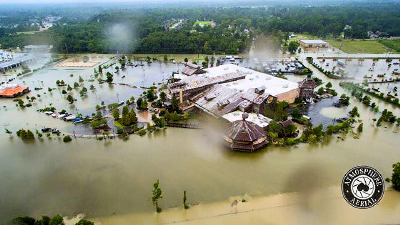The devastation of the flood of 2016 to Baton Rouge and surrounding areas has been high.  Many homes have been destroyed and many are homeless. Some help is on the way from FEMA (Federal Emergency Management Agency) but it is hard to wade through who and what is eligible. Hopefully we can shed a bit of light in the darkness.
Many homes have been destroyed and many are homeless. Some help is on the way from FEMA (Federal Emergency Management Agency) but it is hard to wade through who and what is eligible. Hopefully we can shed a bit of light in the darkness.
Determining Eligible Benefits
- This questionnaire helps you determine what benefits you may be eligible for: https://www.disasterassistance .gov/get-assistance/find- assistancehis is the hyperlink to FEMA’s IHP Applicant’s Guide. The first few pages give a nice summary of eligible v. ineligible losses, etc. I’ve also attached it in PDF format. http://www.fema.gov/pdf/assist ance/process/help_after_disast er_english.pdf
- Online Application Process. This link takes you to the online application process.
- https://www.disasterassistance .gov/DAC/govBenefitReceiver. do?gbsessionid=0&action=RI&lan gcode=EN
Information for Online Application:
You’ll need to have the following information handy to apply online:
- Social Security number
- Family’s gross total household income at time of disaster;
- Contact information
- Electronic Funds Transfer (EFT) Direct Deposit Information (could facilitate quick transfer of funds)
- FEMA Evacuee Hotel List: (Note: you’ll need to select Louisiana before hitting submit to search) http://www.femaevachot els.com/index.php
FEMA’s IHP Program Summary
Before you apply for FEMA’s IHP Program online, it may be helpful to know what benefits you are eligible for:
The following are not eligible losses under the IHP:
- IHP will not cover all of your losses from damage to your property (home, personal property, household goods) that resulted from the disaster.

- IHP is not intended to restore your damaged property to its condition before the disaster.
- In some cases, IHP may only provide enough money, up to the program limits, for you to return an item to service. IHP does not cover business‐related losses that resulted from the disaster.
- By law, IHP cannot provide money to you for losses that are covered by your insurance.
- While some money is available through IHP, most disaster aid from the Federal government is in the form of loans from the Small Business Administration (SBA) that must be repaid. Applicants to IHP may be required to seek help from SBA first, before being considered for certain types of IHP help. You do not have to submit an SBA loan application to be considered for FEMA rental assistance
The following types of assistance are available through the IHP:
- Temporary Housing (a place to live for a limited period of time): Money is available to rent a different place to live, or a government provided housing unit when rental properties are not available.
- Repair: Money is available to homeowners to repair damage from the disaster that is not covered by insurance. The goal is to make the damaged home safe, sanitary, and functional.
- Replacement: Money is available to homeowners to replace their home destroyed in the disaster that is not covered by insurance. The goal is to help the homeowner with the cost of replacing their destroyed home.
- Permanent/Semi Permanent Housing Construction: Direct assistance or money for the construction of a home. This type of help occurs only in insular areas or remote locations specified by FEMA, where no other type of housing assistance is possible.
- Other Needs: Money is available for necessary expenses and serious needs caused by the disaster. This includes medical, dental, funeral, personal property, transportation, moving and storage, and other expenses that are authorized by law.
Program Eligibility
To receive money or help for Housing Needs that are the result of a disaster, all of the following must be true:
- You have filed for insurance benefits and the damage to your property is not covered by your insurance. You may be eligible for help from IHP to repair damage to your property.
- You or someone who lives with you is a citizen of the United States, a non‐citizen national, or a qualified alien.
- Your home is in an area that has been declared a disaster area by the President.
- The home in the disaster area is where you usually live the majority of the year.
- You are not able to live in your home now, you cannot get to your home due to the disaster, or your home requires repairs because of damage from the disaster.
To receive money for Needs Other than Housing that are the result of a disaster, all of the following must be true:
- You have losses in an area that has been declared a disaster area by the President.
- You have filed for insurance benefits and the damage to your personal property is not covered by your insurance. You may be eligible for help from IHP to repair damage to your property.
- You or someone who lives with you is a citizen of the United States, a non‐citizen national, or a qualified alien.
- You have necessary expenses or serious needs because of the disaster.
- You have accepted assistance from all other sources for which you are eligible, such as insurance proceeds or SBA loans.
You may not be eligible for money or help from IHP if:
- You have other, adequate rent‐free housing that you can use (for example, rental property that is not occupied).
- Your home that was damaged is your secondary or vacation residence.
- Your expenses resulted only from leaving your home as a precaution and you were able to return to your home immediately after the incident.
- You have refused assistance from your insurance provider(s).
- Your only losses are business losses (including farm business other than the farmhouse and self‐employment) or items not covered by this program.
- The damaged home where you live is located in a designated flood hazard area and your community is not participating in the National Flood Insurance Program. In this case, the flood damage to your home would not be covered, but you may qualify for rental assistance or items not covered by flood insurance, such as water wells, septic systems, medical, dental, or funeral expenses.
This is a hyperlink to the National Flood Insurance Agent Locator website:https://www.floodsmart .gov/floodsmart/pages/choose_ your_policy/agent_locator.jsp
Types of Eligible Losses
IHP only covers repairs or replacement of items that are damaged as a direct result of the disaster that are not covered by insurance. Repairs or rebuilding may not improve your home above its pre‐disaster condition unless such improvements are required by current building codes.
Housing Needs: Money to repair your home is limited to making your home safe and sanitary so you can live there. IHP will not pay to return your home to its condition before the disaster. You may use your money provided for housing needs to repair:
- Structural parts of your home (foundation, outside walls, and roof).
- Windows, doors, floors, walls, ceilings, and cabinetry.
- Septic or sewage system.
- Well or other water system.
- Heating, ventilating, and air conditioning system.
- Utilities (electrical, plumbing, and gas systems).
- Entrance and exit ways from your home, including privately owned access roads.
- Blocking, leveling, and anchoring of a mobile home and reconnecting or resetting its sewer, water, electrical and fuel lines, and tanks.
Other than Housing Needs: Money to repair damaged personal property or to pay for disaster‐related necessary expenses and serious needs is limited to items or services that help prevent or overcome a disaster‐related hardship, injury or adverse condition. IHP will not pay to return or replace your personal property to its condition before the disaster. You may use your money provided for other than housing needs to repair or pay for:
- Disaster‐related medical and dental costs.
- Disaster‐related funeral and burial cost.
- Clothing; household items (room furnishings, appliances); tools (specialized or protective clothing and equipment) required for your job; necessary educational materials (computers, school books, and supplies).
- Fuels for primary heat source (heating oil, gas, firewood).
- Disaster‐specified clean‐up items (wet/dry vacuum, air purifier, and dehumidifier).
- A vehicle damaged by the disaster.
- Moving and storage expenses related to the disaster (moving and storing property to avoid additional disaster damage while disaster‐related repairs are being made to the home).
- Other necessary expenses or serious needs as determined by FEMA.
*Individuals and Households Program (IHP). Most of this is taken from FEMA’s IHP Applicant’s Guide
